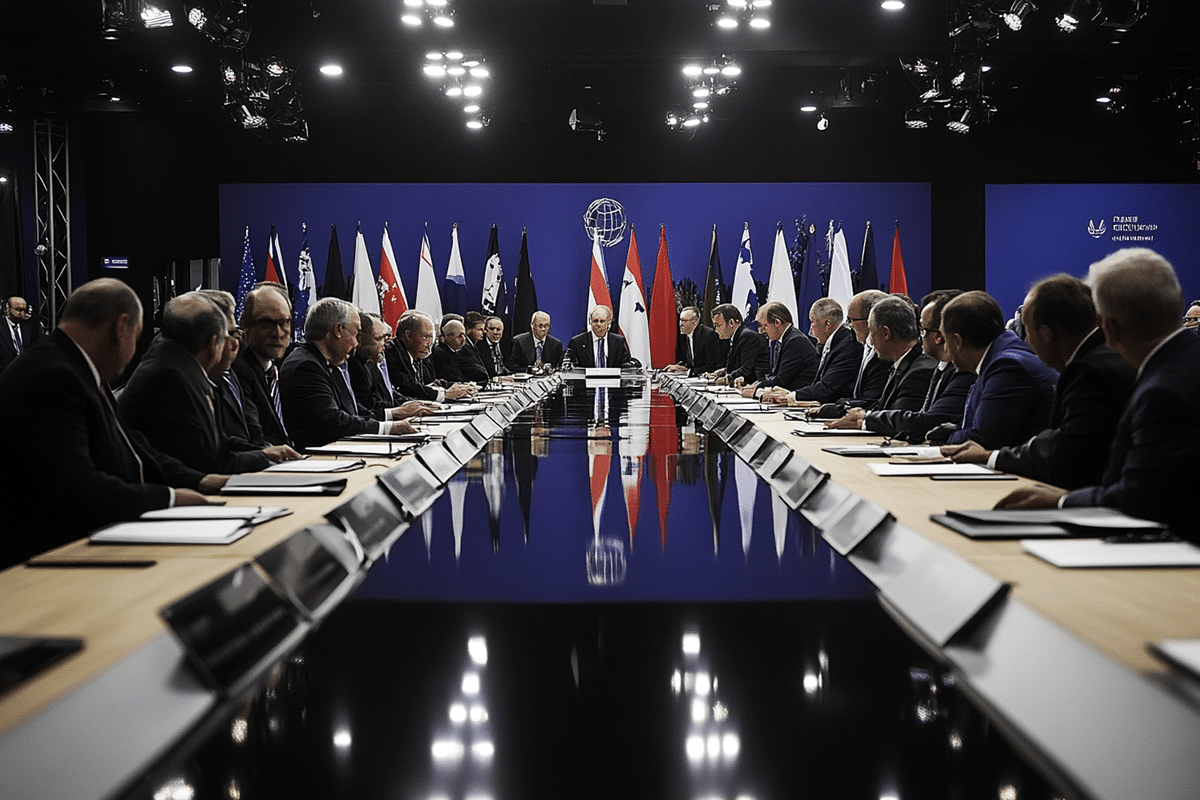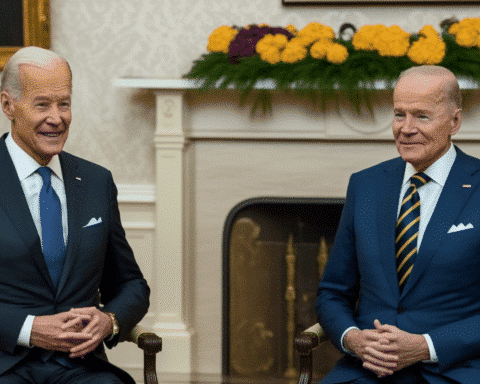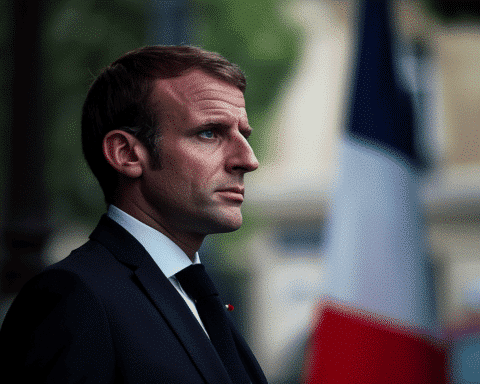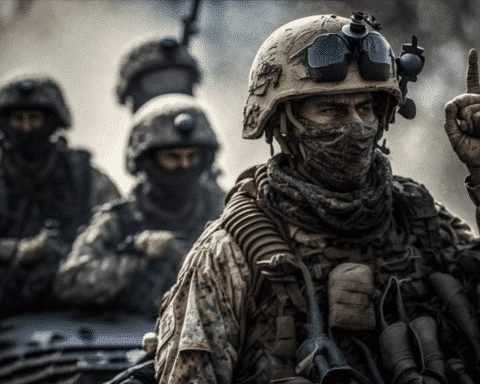In a show of unity and strategic planning, around 50 European leaders gathered in Budapest for the European Political Community summit, calling for a fortified defense stance across Europe. The message was clear: Europe must become more self-reliant and strengthen its defenses to reduce reliance on the United States. The leaders expressed cautious optimism about the incoming U.S. administration, potentially led by Donald Trump, but agreed that Europe’s security interests must take precedence.
The summit, hosted in Hungary’s capital, presented an opportunity for European nations to reassess the transatlantic relationship with the U.S. Leaders reflected on Trump’s first presidency, when his policies had created tensions with European allies. The hope now is that a second term would bring smoother relations while maintaining critical support. At the same time, Europe is increasingly aware of the need to chart its course independently, an imperative expressed by several prominent leaders.
France’s President Emmanuel Macron emphasized the importance of putting European interests at the forefront. The focus, he stated, should be on Europe’s security and strategic autonomy rather than on evaluating U.S. domestic political outcomes. Other leaders echoed this sentiment, urging for a greater commitment to European defense.
This shift toward European autonomy was partly spurred by Trump’s earlier calls for NATO allies to increase defense spending. During his first term, Trump urged NATO member nations to meet and exceed the 2% defense spending target, challenging Europe to reduce its dependency on U.S. military support. Now, many leaders believe that Trump’s insistence on greater European defense spending has been a lasting catalyst for change, with several countries already achieving the 2% benchmark, an accomplishment acknowledged by NATO’s chief, Mark Rutte.
Charles Michel, the EU Council President, emphasized the importance of Europe taking charge of its own destiny. He suggested that becoming more self-sufficient in defense would benefit future generations, regardless of who leads the United States. Greece’s Prime Minister Kyriakos Mitsotakis shared a similar stance, noting the need to “wake up” to Europe’s geopolitical realities and allocate resources more strategically to tackle major global challenges. For Mitsotakis and others, investing in European defense is as much about competitiveness as it is about security.
The implications of Trump’s potential presidency are wide-ranging. In his past term, Trump’s administration imposed tariffs on EU steel and aluminum, declaring foreign products—those from allies included—a potential threat to U.S. security. This triggered retaliatory duties from European countries on American goods, including motorcycles and peanut butter. European leaders now brace for potential economic shifts that could strain this transatlantic relationship once again.
Trump’s stance on NATO and his critical approach to European allies also led to concerns about ongoing support for Ukraine in its conflict with Russia. Trump previously suggested he could resolve the war quickly, a prospect that worries European allies who fear a hasty peace agreement could favor Russia’s interests. The European leaders at the summit conveyed a unified message: if any peace negotiations are pursued, they should be conducted from a position of strength, ensuring security for both Ukraine and the broader European community.
The ongoing geopolitical challenges extend beyond the EU and NATO. Ukrainian President Volodymyr Zelenskyy participated in the discussions, emphasizing the need for a strong alliance between Europe and the U.S. In Zelenskyy’s view, a resilient partnership is essential not only for Europe’s safety but also for America’s standing on the global stage.
The summit also served as a platform for European leaders who view Trump’s return as an opportunity for renewed collaboration. Hungarian Prime Minister Viktor Orbán, a close ally of Trump, expressed enthusiasm for a continued strategic partnership between Hungary and the U.S., as did Italy’s Prime Minister Giorgia Meloni. Both leaders see potential benefits in strengthening their countries’ relationships with Washington, although the past tensions under Trump’s administration are fresh memories for many of their European counterparts.
Complicating the situation further, Germany, Europe’s largest economy, is experiencing political turmoil. Chancellor Olaf Scholz’s coalition collapsed this week after he dismissed his finance minister, leaving Germany’s government in a precarious state. Scholz’s absence from the Budapest summit highlighted the uncertainty in Berlin, and the possibility of a looming election could signal a significant shift within Europe’s political landscape. Polish Prime Minister Donald Tusk noted the added complexity this crisis brings, adding another layer of urgency for a coordinated European response.
As Europe faces a potential shift in U.S. foreign policy and growing internal challenges, leaders remain focused on strengthening the continent’s autonomy. The discussions in Budapest underscored a collective recognition that while strong transatlantic ties remain valuable, Europe must be prepared to safeguard its interests independently. The summit marks a pivotal moment in Europe’s pursuit of a more resilient and unified defense strategy.




